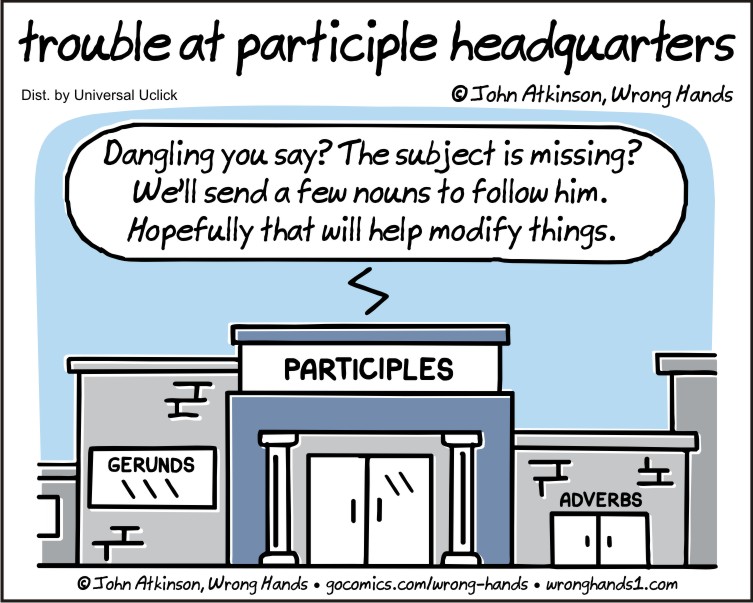Archive for March, 2021
Averaging grammatical persons?
Averaging works for numbers, but maybe not for combining third person and first person to get second person?
Update — The cited mistake was obviously a slip, rather than evidence of ignorance, and I should not have been so unkind as to publicize a joke that implies otherwise.
Kelly Robinson gives it a try — "Dr Seuss 'cancelled'? There’s nothing new about cutting racism from children’s books", The Guardian 3/9/2021 [emphasis added]:
The Hardy Boys and Nancy Drew series, which debuted in 1927 and 1930 respectively, were originally packed with unflattering portraits of ethnic villains, who were “swarthy”, “hook-nosed”, or “dark, and rather stupid looking”. In The Hardy Boys’ Hidden Harbor Mystery, the criminal exploits are executed by Luke Jones, a Black man who wears stolen diamond rings, speaks in a heavy dialect and refers to himself in the second person: “Luke Jones don’t stand for no nonsense from white folks! Ah pays mah fare, an’ Ah puts mah shoes where Ah please.” Meanwhile, Nancy Drew solved The Mystery at Lilac Inn by means of racial profiling: spotting a “dark-complexioned” girl at an upscale dress shop, Nancy notes: “Surely a girl in her circumstances cannot afford to buy dresses at such a place as this.”
Read the rest of this entry »
Singlish "lah", with a possible deep connection to colloquial Arabic
A prominent feature of Colloquial Singaporean English (Singlish) is sentence-final "la", in which it has more nuances and innuendoes than you can shake a stick at. Anyone who has heard Singaporeans talking freely cannot fail to be struck by the frequency and variety of sentence-final "lah". This ubiquitous particle "lah" (/lá/ or /lâ/), sometimes spelled as "la" and rarely spelled as "larh", "luh", or "lurh", may possibly have been absorbed into Singlish from a similar word in Malay. See David Deterding, Singapore English (Edinburgh: Edinburgh University Press, 2007), p. 71.
Read the rest of this entry »
Annals of homophony
"Bunny Wailer, Reggae Pioneer With the Wailers, Dies at 73", NYT 3/2/2021:
Bunny Wailer, the last surviving original member of the Wailers, the Jamaican trio that helped establish and popularize reggae music — its other founders were Bob Marley and Peter Tosh — died on Tuesday at a hospital in Kingston, Jamaica. He was 73. […]
Formed in 1963, when its members were still teenagers, the Wailers were among the biggest stars of ska, the upbeat Jamaican style that borrowed from American R&B. On early hits like “Simmer Down” and “Rude Boy,” the three young men — who in those days wore suits and had short-cropped hair — sang in smooth harmony, threading some social commentary in with their onomatopoeic “doo-be doo-be doo-bas.”
Read the rest of this entry »
Remembering Richard Montague
Ivano Caponigro has created a page memorializing Richard Montague on the fiftieth anniversary of his death.
You should go read the whole page, which includes many pictures, a chapter from Ivano's in-process Montague Biography (the chapter title is "The birth of a new passion: natural language 1966"), and a YouTube video presenting Montague's 1967 explanation of his turn towards natural language.
Read the rest of this entry »
A purported Hindi-Arabic round-trip word
More than thirty years ago, I coined the term "round-trip word" (láihuí cí 來回詞) to signify a word that is used in one language, is borrowed by another language which attaches a different meaning to it, often one that is calqued from a third language, and then is sent back to the original language with the new meaning. In the modern version of the originating language, the new meaning usually displaces the old meaning.
This phenomenon is very common between Chinese and Japanese. I cited scores of examples in this short paper (item #2):
"Two Papers on Sinolinguistics: 1. A Hypothesis Concerning the Origin of the Term fanqie ('Countertomy'); 2. East Asian Round-Trip Words," Sino-Platonic Papers, 34 (October, 1992).
Read the rest of this entry »
Ultracrepidarian
I came upon this curious word by chance in the following article:
"Know your English — What is the meaning of ‘ultracrepidarian’?", by S. Upendran, in The Hindu (9/2/13; updated 6/2/16)
First, let us deal with the pronunciation of the word. The first two syllables are pronounced like the word ‘ultra’, and the following ‘crep’ rhymes with ‘prep’ and ‘rep’. The ‘i’ is like the ‘i’ in ‘bit’, ‘hit’, and ‘sit’, and the ‘dar’ is pronounced like the word ‘dare’. The word is pronounced ‘ul-tra-krep-i-DARE-ien’ with the stress on the fifth syllable. An ultracrepidarian is someone who is in the habit of giving advice on matters he himself knows nothing about — like a politician! This Latin word literally means ‘beyond the shoe’.
*My ultracrepidarian uncle will be spending two weeks with us.
The story goes that when the Greek painter Apellis displayed his beautiful painting of Alexander the Great, a shoemaker pointed out that the sandals in the painting did not have the required number of loops. The artist thanked him, and immediately set about making the required changes. Once they had been carried out, the emboldened shoemaker began to comment on other aspects of the painting — the shape of Alexander's legs, his robes, etc.
Read the rest of this entry »
Radio Garden
 In case you missed it — Radio Garden:
In case you missed it — Radio Garden:
Radio Garden invites you to tune into thousands of live radio stations across the globe.
By bringing distant voices close, radio connects people and places. From its very beginning, radio signals have crossed borders. Radio makers and listeners have imagined both connecting with distant cultures, as well as re-connecting with people from ‘home’ from thousands of miles away.
Radio Garden is based in Amsterdam, the Netherlands. Our dedicated team is hard at work tending to the garden on a daily basis. Planting seeds for the future and keeping the weeds at bay.
[h/t Bradley Sherman]
The Garden of Morning Calm
[This is a guest post by S. Robert Ramsey]
You’ve probably heard Korea referred to as the “Land of the Morning Calm.” That’s a nickname for Korea that’s been used in the West at least since the 19th century.
And perhaps because Koreans agree that “Morning Calm” sounds mystical and romantic, it’s been picked up lately—often for commercial purposes—in South Korea, too. Korean Airlines, for example, has frequent flier perks for members of its “Morning Calm Club.” In 1996, an arboretum east of Seoul was given the name, “Garden of Morning Calm.”
But the nickname is a chimera, the result of a mistake—and probably one made by some starry-eyed Westerner infatuated by the mysterious Orient. ‘Morning Calm’ is a mistranslation of an ancient name for Korea, a name known only from ancient Chinese records.
Read the rest of this entry »
Anti-Neanderthal prejudice?
NEW: President Biden calls Texas and Mississippi decisions to end mask mandates “a big mistake" and criticizes what he views as “Neanderthal thinking” after CDC warned against complacency in the face of emerging coronavirus variants on Monday. pic.twitter.com/Mmdln3gNG6
— NBC News (@NBCNews) March 3, 2021
“We are on the cusp of being able to fundamentally change the nature of this disease because of the way in which we’re able to get vaccines in people’s arms […] And the last thing, the last thing we need is Neanderthal thinking, that, ‘In the meantime, everything’s fine. Take off your mask. Forget it.’ It still matters.”
Read the rest of this entry »
Xy McXface wins again
Mary Divine, "Plowy McPlowFace plows through the competition to win snowplow naming contest", Pioneer Press 3/2/2021:
After all the votes were tallied, it wasn’t even close. Plowy McPlowFace won the Minnesota Department of Transportation’s inaugural “Name a Snowplow” contest with 65,292 votes. The next-closest vote-getter was Ope, Just Gonna Plow Right Past Ya, which garnered 29,457 votes.
[For those who don't know ope, Wiktionary glosses it as "(Midwest) an exclamation of surprise; oops", and Tod Van Luling discussed it at length a couple of years ago in the Huffington Post.]
Plowy McPlowFace will soon be plowing streets in the Metro District; Ope, Just Gonna Plow Right Past Ya will make its home in District 4 in west-central Minnesota.
The other winning names, in order of vote totals, and their future homes are: Duck Duck Orange Truck in District 1 (northeastern Minnesota); Plow Bunyan in District 2 (northwestern Minnesota); Snowbi Wan Kenobi in District 6 (southeastern Minnesota); F. Salt Fitzgerald in District 7 (south-central Minnesota); Darth Blader in District 3 (central Minnesota); and The Truck Formerly Known As Plow in District 8 (southwestern Minnesota).
MnDOT officials invited people in mid-December to submit possible names for snowplows. Among the submissions were a number of Minnesota-themed names, including Joe Plow-er, Justin More-snow, Kent Brrr-bek, Raspberry Brrr-et and Purple Snow.
One of the most popular suggestions was the phrase “Abolish ICE,” according to an analysis by the Minnesota Reformer, an independent news website, which obtained the almost 23,000 entries in a public-records request. The name, a play on the rallying cry of critics of the federal Immigration and Customs Enforcement agency, ranked No. 2 among the entries, the Reformer determined.
But MnDOT officials excluded it from its list of 50 finalists.
Read the rest of this entry »

